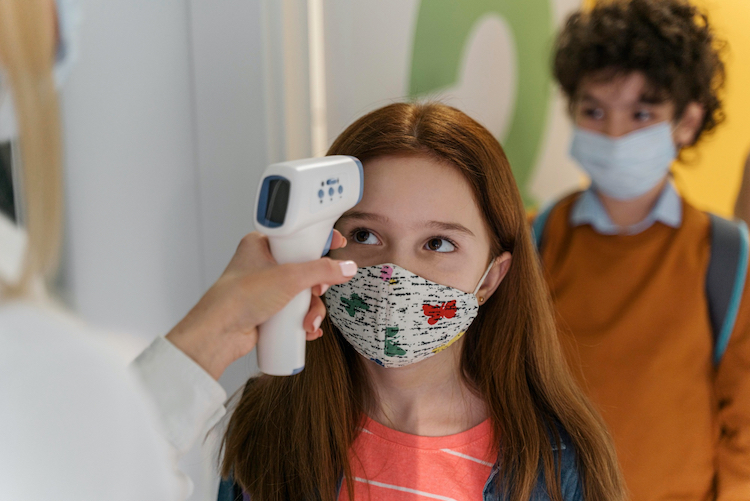Nation’s School Mental Health Network Will Be Severely Tested
 From loneliness and anxiety to severe or suicidal depression, the coronavirus’ mental health impact on youth has surged into its own epidemic, swelling the number of children’s visits to emergency rooms for mental health problems. National screenings show that children, adolescents and teens have struggled emotionally during the pandemic more than any other age group. But as waves of young people return to school, the system of mental health supports that await them remains patchy and overburdened.
From loneliness and anxiety to severe or suicidal depression, the coronavirus’ mental health impact on youth has surged into its own epidemic, swelling the number of children’s visits to emergency rooms for mental health problems. National screenings show that children, adolescents and teens have struggled emotionally during the pandemic more than any other age group. But as waves of young people return to school, the system of mental health supports that await them remains patchy and overburdened.
School mental health providers are in critically short supply for two reasons: There aren’t enough training programs for those interested in entering the field and those who do obtain credentials can earn more as in the private sector.
Mental health providers are also concentrated in cities. In rural areas of the country, districts often can’t fill open positions and are beginning to opt for connecting students with practitioners by video.
Experts, including Robert Boyd, president and CEO of the School-Based Health Alliance, also worry that most providers are white women. Especially needed, he said, are pathways for young people of color to become licensed and certified mental health providers without accumulating massive debt.
But that approach, Boyd concedes, will take at least a decade to make any kind of dent.
Many districts, even while under pressure to accelerate learning, are adding behavioral health programs as they reopen schools. In some cases, this means flipping the way students receive help from the traditional referral-based system to proactive outreach. Social workers are calling students who they have seen before to ask how they are doing and using surveys to assess other students for signs of distress.
Most young people have experienced what experts call “disenfranchised grief” — the sadness and irritability of missing out on life, with no return to normal in sight, coupled with a sense that such feelings don’t rate attention when other people have lost loved ones.
Experts say that most kids will respond positively to two things that schools provide naturally: routine and friends. Few age groups are as developmentally social as teenagers; being able to safely return to typical peer group interactions may be all some kids need. Others will need more support, but even though schools are required to provide it, they don’t always do so.
For many kids, just getting back to normal won’t magically make anxiety and depression go away, experts say. Robust, school-based mental health programs that last beyond this year will be critical to identifying and helping all the kids who need support. Such programs have been thin on the ground for decades, but advocates are hopeful that the federal reaction to the pandemic could help schools change course.
The Biden administration has urged state lawmakers to direct some of the federal relief funds earmarked for K-12 public schools — $195 billion between the CARES Act and the American Rescue Plan — to mental health supports.
All of this might help address student needs in the short term, after a difficult year. But the if the shortage of professional providers persists it will, if not addressed, only get bigger.
“Short term money is important, don’t get me wrong,” said Boyd. “We’re working with superintendents to recruit kids out of the schools we’re seeking to serve, to increase and diversify the workforce over the next 10 years. It’ll take that long to do it.”
Excerpted from “Nation’s skeletal school mental health network will be severely tested” in The Hechinger Report. Read the full article online.
Source: The Hechinger Report| Nation’s skeletal school mental health network will be severely tested, https://hechingerreport.org/nations-skeletal-school-mental-health-network-will-be-severely-tested |© 2021 The Hechinger Report
A screening can help you determine if you or someone you care about should contact a mental health professional. Care Managers can arrange a free 30-minute Care Consultation so you can explore options with an expert. Call or email our Care Managers at 650.688.3625 or careteam@chconline.org to set up an initial Consultation appointment.





